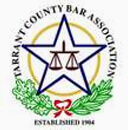Even if you and your spouse agree that ending your marriage is the right decision, the divorce process can still be extremely complicated. Unfortunately, matters only become more difficult for non-heterosexual couples looking to dissolve their marriage. While state and federal law treat opposite-sex and same-sex marriages equally in purely legal terms, there are a handful of practical obstacles in the divorce process that are likely to affect LGBTQ+ couples.
Assistance from a knowledgeable divorce attorney who has experience effectively handling divorces between same-sex couples could be key to getting through the process efficiently yourself. By working closely with an LGBTQ divorce lawyer in The Colony, you could ensure your rights are respected throughout negotiations with your spouse and improve your chances of getting a favorable result. Contact us today to discuss your unique situation with a capable legal professional.
One of the biggest reasons LGBTQ divorces end up being more complicated in practice than heterosexual divorces is the way Texas law approaches the division of marital assets between divorcing spouses. Texas courts overseeing divorces follow a “community property” model when deciding who will get what once the divorce concludes. This means that virtually all property and assets obtained by either spouse during their marriage are considered “community property” that will then be divided equally between both spouses.
However, because LGBTQ marriage only became legal in Texas following the 2015 U.S. Supreme Court decision in the case Obergefell v. Hodges, the date on which an LGBTQ couple was married (in legal terms) may be very different from the date on which their relationship started, or when they became “informally married” as defined by state law. This means that some property that would be treated as “community property” in a heterosexual divorce might instead be treated as “separate property,” making it ineligible for division.
This issue can sometimes be addressed in advance by explicitly “comingling” specified property through a pre- or post-nuptial agreement. Still, it can be challenging to establish that certain assets should be “community property” without such an agreement in place. Support from a skilled attorney can be vital to resolving problems like this during an LGBTQ divorce in The Colony.
Another common complication during LGBTQ divorces in The Colony and throughout the Lone Star State involves custody of children cared for by two married, same-sex spouses. While state law automatically assumes that both spouses in a heterosexual marriage share parentage of any children born to the wife in that marriage, it does not extend the same assumption to same-sex couples.
However, someone who is not a child’s biological parent but has either legally adopted the child or been a primary caregiver for them for at least six months while married to the child’s biological parent may have the standing to file a Suit Affecting the Parent-Child Relationship (SAPCR). This document allows the individual to request that a court formally grant them custody rights. An LGBTQ divorce attorney in The Colony could explain this process in more detail and offer legal support throughout.
By the letter of Texas law, LGBTQ marriages are entirely equal to heterosexual marriages in every way. That said, some aspects of state law still have not adjusted completely to the unique elements of these marriages, and that can often make divorce uniquely complex.
Guidance from an LGBTQ divorce lawyer in The Colony could make a world of difference when it comes to protecting yourself and your best interests. Call our firm today to learn more.
Our Law Firm’s approach to your case is based on individual circumstances. Whether it is a simple negotiated settlement, or it requires an aggressive approach, we will protect and defend your best interests.


